RIP Samuel “Doc” Gruber
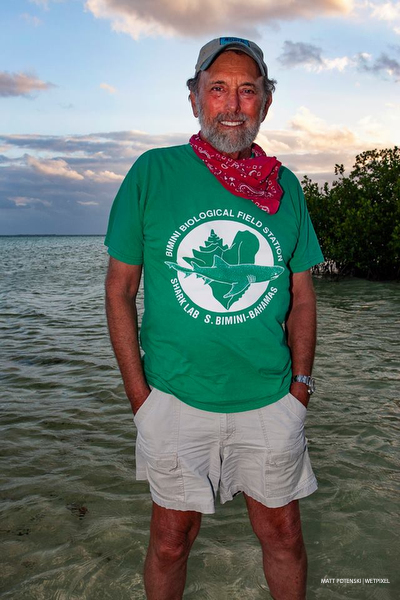
It is with great sadness that we announce the passing of Dr. Samuel “Doc” Gruber, founder of the Bimini Biological Field Station on Thursday 18 April.
Originally from Brooklyn, Doc was a shark biologist and founder of the American Elasmobranch Society. He was a Professor at the University of Miami’s Rosenstiel School for Marine and Atmospheric Science and was a recognized authority on shark science, having completed 49 Atlantic research cruises and over 170 scientific publications. He specialized in shark behavior, anatomy, sensory systems, tracking, and shark repellents. He was perhaps best known for his studies on habitat selection and homing behavior of lemon sharks (Negaprion brevirostris)and spotted eagle rays (Aetobatus narinari) around the Bimini Shark Lab.
The Wetpixel community would like to wish his family and friends our thoughts and prayers during what must be an awful time.
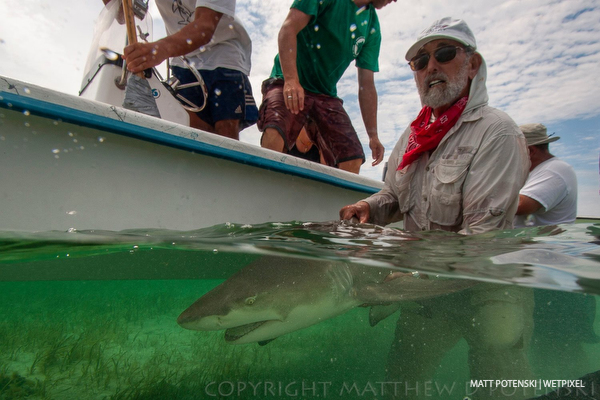
Doc inspired so many people throughout his incredible life and career who may wish to share their appreciation for his life and works, but the Gruber family have requested some private time to grieve. For those of you who would like to share additional memories with the family, please submit them to the Sharklab website to be compiled in a memoir book. We have also started a thread on the Wetpixel forum for folks to share thoughts, memories, and images, which will also be shared in the book.
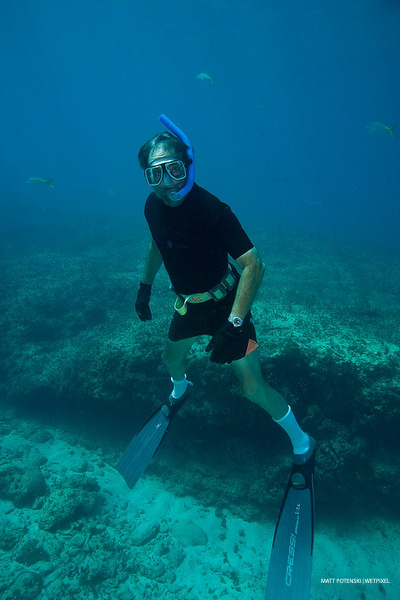
More information regarding memorial services to celebrate the life of Doc will be announced at a later date. Instead of flowers, the family has requested donations to the Sharklab that Doc worked so hard for, which can be done via our website.
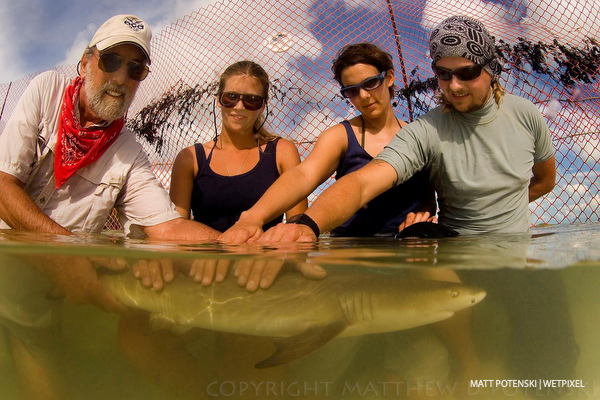
Memories of “Doc” Gruber
Kristene Parsons
My first memory of Doc is meeting him at the airport on my way to volunteer at Bimini. It had been a goal since sometime in the mid ’90s when I read a magazine article featuring Doc and his research. I took it to the principal of my high school and asked for the school’s support to join the Earthwatch volunteer program. The request was denied so I spent the following years volunteering for marine labs, zoos, science centers, humane societies; whatever I could do to gain the experience that might one day lead to Bimini, Doc and his lemon sharks.
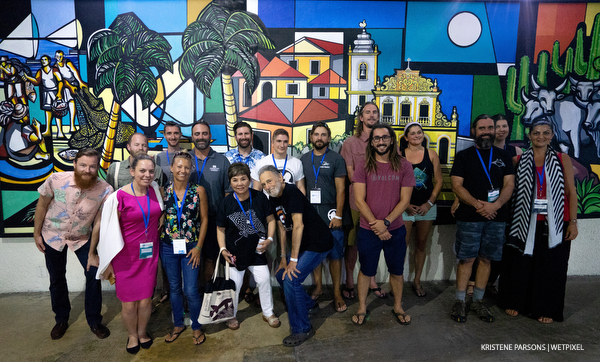
Looking back on it now, it seems like meeting Doc that day in 2002 was like a coming of age for me, equivalent in feeling to both winning the lottery and giving everything that I had in the same moment but also proving profoundly rewarding throughout the many years since. He became family to me that day, and I am grateful for every day, every conversation, every lesson and all the laughter, challenges, successes, and joy we shared together.
His passion for the sharks, research, along with the BBFSF and AES community was his purpose, and so it became for many of us too. He was the singular difference in our paths that created one family devoted to his vision – a higher purpose that demanded everything of us. He gave everything to his cause for decades, even in his final year. He was our hero. He was my mentor, colleague, friend, and family. Through the years, his was the voice pushing me forward without exception, without excuses.
I was privileged to spend many hours with Doc this past year. Doc’s strength, grit, and will could not be deterred by the latest diagnosis or treatment — there was always work to do, and even at 80 years old, his energy outpaced me most days.
Like all my BBFS and AES brothers and sisters, Doc’s inspiration and support helped carve my life story and remained a permanent guiding force that I will forever cherish. I honor Doc for all he gave, the lives he touched, his work and his legacy that will continue to live on.
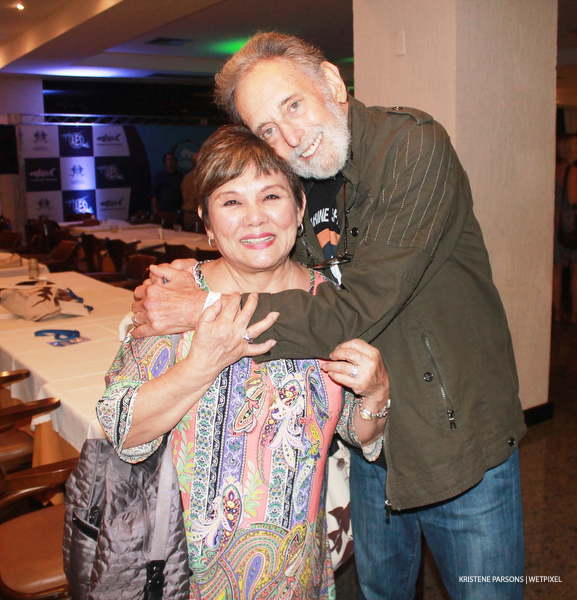
Thank you, Doc. Always standing by.
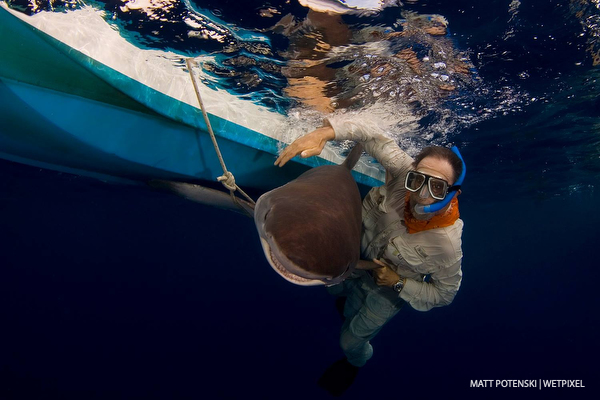
Matt Potenski
I knew Sam “Doc” Gruber for almost 20 years and spent over a decade working with him and the Bimini Biological Field Station - Sharklab. He was a brilliant scientist, a champion of conservation causes, and a visionary who facilitated bringing shark researchers together through both the American Elasmobranch Society (AES) and the Sharklab. I learned many things both directly from him and by observing how he approached research. He kept all those around him intensely focused and on task while simultaneously entertaining us with some of the best one-liners ever to have been uttered. Doc was simply a huge personality, and above all, he got to do it his way.
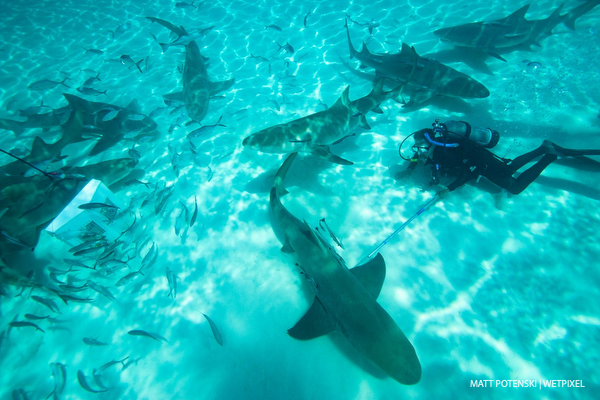
By far my favorite memory of Doc was our first trip to Tiger Beach, an area of the Great Bahama Bank just north of the West end of Grand Bahama in 2008. We found white rippled sand, crystal clear waters, and tons of sharks. We were doing an exploratory mission on a private yacht, just Doc, myself, Steve Kessel, who was a principal investigator working on his Ph.D. research at the Sharklab and the boat crew. We were planning on tagging a few sharks with acoustic transmitters and deploying acoustic listening stations. We had brought a couple tanks with us and decided on diving with the large group of lemons around our bait box. We descended, and Doc was utterly in his element.
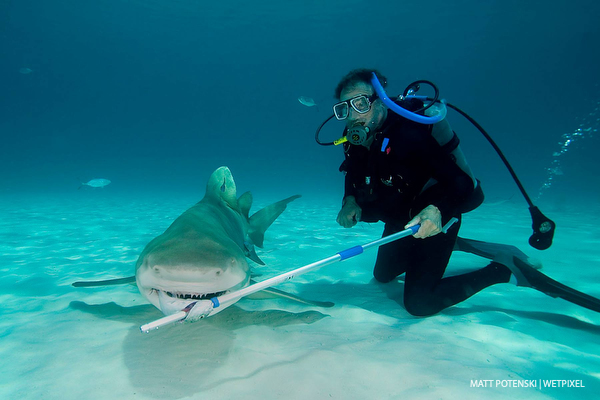
He took a pole down and was taking bait from a plastic bag and pole-feeding sharks. He easily led the sharks in a kind of strange dance, and it was amazing to behold. Upon surfacing, Doc had the biggest grin I had ever seen and simply stated; “That was the best day in my entire career.” For a man who had studied lemon sharks for over forty years at that time to be as excited as a child in a candy store was genuinely inspiring to me. It just confirmed how passionate Doc really was and how much sharks meant to him. I will never forget our dinner conversations on that trip and what a shark paradise that location is. But mainly, I will always remember the lessons I learned from Doc not only about science and sharks, but about life, passion, and being lucky to share that amazing underwater experience with him.